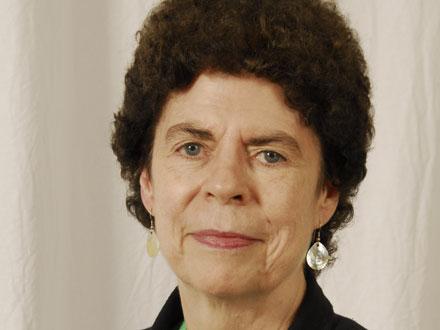The Vatican Is Completely Correct to Clarify That Sister Farley's Book Stands Firmly outside the Tradition of the Church
By Alexander Lucie-Smith
You may have read that the Vatican has condemned a book by Sister Margaret Farley. The Catholic Herald's account of the matter is to be found here. Funnily enough, I read and reviewed the book in question when it first came out, which was back in 2006, and the review was published in the Heythrop Journal of May 2008; academic reviews often come out a year or two after the original book's publication, though a two-year gap is nothing compared to the six years that it has taken the CDF and Rome to give its verdict. My review is not online, but I have a hard copy in front of me and am happy to share some highlights. "In a brief section (pp. 235-236), a mere one and a half pages, she deals with 'self-pleasuring', a topic that, usually under a different name, has, historically, led to the spilling of rivers of ink. Farley notes that the judgment of tradition has been overwhelmingly negative; even Kant disapproved very strongly; however now 'most' theologians and medical practitioners view the activity as 'morally neutral'; in other words it all depends on reasons and circumstances. Her final word is that 'This remains a largely empirical question, not a moral one'. This is certainly a coherent point of view, but where is her evidence for this position? She mentions Kinsey and the empirical evidence of some human experience, but she does not explain how the change from moral evil to moral neutrality occurred. One can be forgiven for thinking that the 20th century arrived and the mists of obscurantism vanished before the bright sun of reason ('Christian traditions … judged it harshly before the 20th century' (p.236)) – but this is not an argument." That is just one of the topics on which the CDF picks up on what Sister Farley has to say and finds it wanting. When it comes to homosexual relations, her judgment is even more sweeping. According to Farley, at page 295 of her book: "My own view, as should be clear by now, is that same-sex relationships and activities can be justified according to the same sexual ethic as heterosexual relationships and activities." This, once again, is a conclusion, and a conclusion with which many – such as the Prime Minister of the United Kingdom – agree: but the book presents no argument for such a conclusion, as I noted at the time. Sister Margaret Farley's book is not really a theological book, it is more an anti-theological book, because it tells us that everything that has gone before is more or less wrong and all that we believe now is more or less right, ignoring the inconvenient fact that this modern knowledge is not based on any sort of theological reflection, but rather on the rejection of theological tradition. Margaret Farley is a theologian in the sense that David Cameron and others, with their championship of gay marriage, are theologians. Incidentally, I have no personal grudge against Sister Farley. I have never met her, and all I know of her is her book. She is perfectly entitled to her views, but the CDF is completely correct to point out to the faithful what constitutes a legitimate part of the tradition, and what stands firmly outside of it. All that surprises me is that it took so long for them to do so.
|
.
Any original material on these pages is copyright © BishopAccountability.org 2004. Reproduce freely with attribution.
